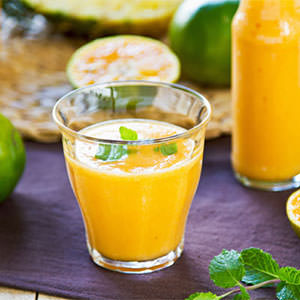
As consumers everywhere struggle to cut back on calories and fight the rise in obesity, they turn to nutritional alternatives they have been told are better for them. But are all the products advertised as healthy alternative really healthy for the body?
The fact is that a surprising number of nutritional options aren’t actually nutritious at all. Below are 12 common nutritional foods that aren’t good for the body.
1. Breakfast Cereal
Roughly 31% of Americans start their day the same way, with a bowl of cereal and milk. Americans are reminded on a daily basis that breakfast is the most important meal of the day. It provides the nutrition and energy our body needs after an overnight lull in nutrient intake, and gets the body firing on all cylinders to start the day.
The truth is that almost all cereals sold in American grocery stores are not remotely healthy. When manufacturers are processing flakes of corn and cute little O’s for your morning cereal, they are destroying the vitamins and minerals contained in those ingredients. They try to compensate by fortifying with artificial vitamins and minerals, but the body largely rejects these nutrients.
2. Low Fat and Skim Milk
Milk is pushed by the powers that be as an excellent source of vitamins, minerals, protein and other nutrients. Everyone has heard the famous milk advertising campaigns from recent memory, such as “Milk, it does a body good,” and “Got Milk?” The problem is that people are often advised to choose Skim and Low-Fat milk because both varieties have fewer calories.
The problem here is that Skim and Low-Fat milk have less of vitamins A, D, E and K than whole milk. The saturated and monounsaturated fats in whole milk leave you feeling more satisfied and better support metabolism in the body. Without those fats, the body struggles to intake the vitamins and other nutrients in milk.
3. Synthetic Oils
Butter has gotten a bad reputation during the health craze of the 21st century. This has led to a rise in the advertising and use of synthetic oils like Crisco, margarine and other butter substitutes. Consumers have been told that the fat in butter will make them fatter, and since those fats are bad synthetic oils (with no fat) are good for them.
The truth is, those synthetic oils have been so highly processed they are actually worse for you than butter. Synthetic oils are hydrogenated to extend their shelf life, bleached and artificially flavored so you “won’t believe it’s not butter.”
Unfortunately, all this has done for synthetic oils has made them harder for the body to digest and increased your risk for heart disease and other cardiovascular conditions.
4. Vegetable Oil
Have you ever wondered how manufacturers produce some of those vegetable oils you find on the grocery store shelves? Surely they go out to the fields and squeeze oil from stalks of corn, grape seeds or peanuts right? Wrong. Canola, corn and grape seed oil are produced by blasting the seeds with chemicals at high temperatures to extract the oil.
Once that process is done, the vegetable oils are injected with more chemicals to alter color and odor. In the end, you have oil that has been transformed in a polyunsaturated fatty acid (PUFA) cocktail. These PUFA’s aren’t digested well by the body and put you at risk for heart disease, obesity and diabetes.
5. Protein Bars
On the surface, they seem like a quick and easy substitute in the diet that offers grains, nutrients and protein the body needs during the day.
The fact is however, that most of the protein bars on store shelves are little more than candy bars in adult packaging.
Most protein bars are packed with sugar and high-fructose corn syrup with high trans-fat counts and loads of artificial sweeteners.Although most do have a good protein content, it isn’t worth the damage done by the sugar and artificial ingredients contained within.
6. Sports Drinks
Any American that has watched a football game on television or played a sport growing up is well aware of the number of sports drinks out there claiming to offer faster rehydration and improved recovery over water. The problem is, as a study from the University of Oxford found, that few of these sports drinks can actually support their claims with evidence.
The reality that is one glance at the nutrition facts on a bottle of your favorite sports drink will reveal that while many do offer useful electrolytes, they also pack a lot of sugar and a high calorie count.
7. Wheat Bread
White bread has come under some heavy scrutiny during the 21st century as being overly processed and devoid of nutritional value. From a fitness standpoint, wheat bread has been pushed as a healthy alternative because it lacks the processing of white bread and your body burns it slower, releasing steady bursts of energy.
Unfortunately, a good number of wheat breads (particularly those labeled multi-grain or seven grain) use refined flour, hydrogenated oils, artificial sweeteners, preservatives to improve lifespan, food coloring and high-fructose corn syrup. Wheat bread can be healthy, but reading nutrition labels is vital. If the first ingredient isn’t “whole grains” or “whole wheat,” something is off.
8. Egg Whites
Ah, the egg. Many Americans can probably remember the ad campaigns of the late 1980s and 1990s that espoused the cholesterol dangers lurking in those morning scrambled eggs. In response, the food industry came out with product after product containing only egg whites. The problem is that egg yolks are healthy when consumed as part of a balanced diet.
For starters, your liver produces more cholesterol in one day than you’ll ingest as part of your diet. Additionally, cholesterol in your diet doesn’t directly correlate to blood cholesterol levels. Not only does cholesterol help produce muscle-building testosterone in the body, it also provides fat-soluble vitamins the body needs like A, D, E and K.
9. Fruit Juice
If an apple a day keeps the doctor away, what can a glass or two of apple juice each day do for you? Fruit juices are often pushed as a healthier alternative to soda and other carbonated beverages.
The fact is that most fruit juices, while rich in vitamins, are also packed with sugar and carrying high calorie counts.
For example, an 8oz glass of grape juice has 170 calories, 42 grams of carbs and 40 grams of sugar.
In that smaller glass of grape juice, your body has just been hit with more calories and sugar than what is found in a 12oz can of Coca-Cola.
10. Low-Fat and Fat-Free Yogurts
In an effort to pull breakfast lovers away from their frozen toaster-waffles and bowls of cereal, yogurt companies have been advertising one low-fat or fat-free yogurt after another. More and more people equate low-fat or fat-free with a healthier diet. Unfortunately, most of those low-fat yogurts you love still have high-fructose corn syrup inside along with sugar and starch.
Some have as much sugar as a candy bar, while others use harmful artificial sweeteners inside. To make matters worse, manufacturers throw fruit in the bottom and advertise the yogurt as even healthier. Those fruits are often soaked in sugar or come from concentrate, making them the exact opposite of healthy.
11. Dried Fruit
Everyone tries to eat healthy by purchasing fresh fruit from the produce section in the local grocery store. Inevitably those fruits don’t get eaten in time and go bad, ended up as wasted money thrown out with the trash. So many will compromise and buy dried fruit.
The same healthy benefits with no expiration date, sounds perfect right? Frankly, it sounds too good to be true because it is. While dried fruits still have the healthy vitamins and fibers you are looking for, they also contain a lot of sugar and other chemicals that have been added to improve shelf life.
12. Anything Fat-Free
Again, food companies have seized on the obesity epidemic and advertised a slew of fat-free products that promise to help consumers cut fat and lower calories in search of healthy lives. But if fat is cut from these foods, aren’t you curious what goes into the contents during processing in place of those fats? Fat in food doesn’t make you fat.
Eating too much food, maintaining a poor diet and never working out make you fat. The body needs fats to support activities from brain function to metabolic functions that actually help you burn fat. Even worse, companies replace those fats with trans-fats and artificial sweeteners which can actually damage your health.
ADVERTISEMENT
Most popular
ADVERTISEMENT
Most Recent
-
 July 30, 2019
July 30, 2019
-
 November 27, 2017
November 27, 2017
-
 October 26, 2017
October 26, 2017
-
 October 24, 2017
October 24, 2017
-
 October 20, 2017
October 20, 2017
Facebook Introduces The ‘Explore Feed’ To All Desktop And Mobile Users
-
Top Stories
-

Why Women Fake Orgasms And What To Do About It
-

Here’s Why Monogamy Might Already Be An Obsolete Notion
-

Pricey Engagement Rings Linked To Higher Divorce Rates
-

5 Headshot Mistakes That Are Keeping You From Your Dream Job
-

5 Games We’re Looking Forward To In 2017
-

Ultimate Aphrodisiacs For 2017: These Perfumes Will Drive Women Wild
-

7 Cool And Easy Ways To Earn Extra Money In 2017
-
Information on this site is for educational and informational purposes only.
For further inquiries, please contact us.
Copyright MensMagazine.com © 2013 -2017

